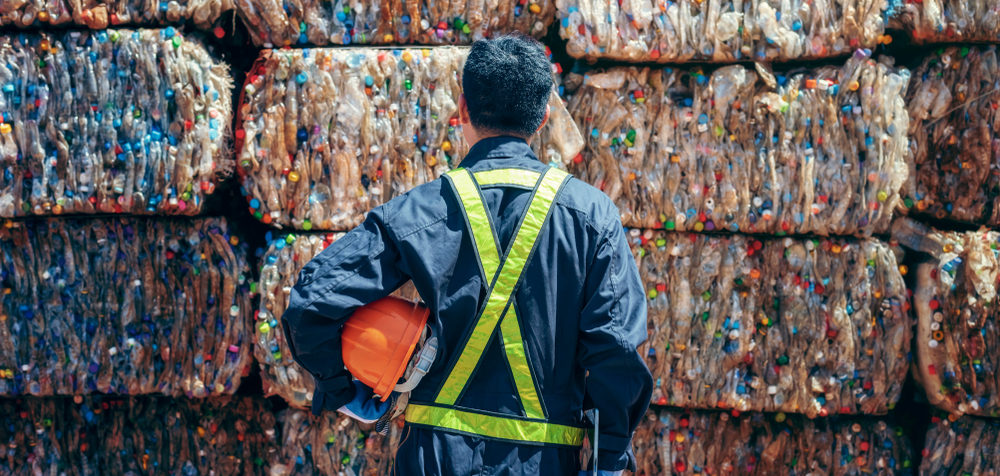
The US Department of Energy’s Pacific Northwest National Laboratory (PNNL) and scientists from the Technical University of Munich in Germany have made a significant breakthrough in the process of recycling plastics.
Recycling plastics requires ‘cracking’ – the splitting apart of the bonds that make the plastics so persistent in the environment. Cracking requires high temperatures, making it expensive and energy intensive, so less feasible economically.
Researchers at PNNL discovered that combining the cracking step with a second reaction step immediately completes the conversion to a liquid gasoline-like fuel without unwanted byproducts. The second reaction step uses alkylation catalysts, which provide the same chemical reaction as is currently deployed by the petroleum industry to improve the octane rating of gasoline. Importantly, this alkylation reaction immediately follows the cracking step in a single reaction vessel, at near room temperature (70 degrees C/158 degrees F).
“Cracking just to break the bonds results in them forming another one in an uncontrolled way, and that’s a problem in other approaches,” said Oliver Y. Gutiérrez, a study author and chemist at PNNL. “The secret formula here is that when you break a bond in our system, you immediately make another one in a targeted way that gives you the end product you want. That is also the secret that enables this conversion at low temperature.”
The researchers do note that their findings have a limitation – the process works for low-density polyethylene products (LDPE, plastic resin code #4) and polypropylene products (PP, plastic resin code #5) that are not typically collected in curb-side recycling programs in the United States. High-density polyethylene (HPDE, plastic resin code #2) would require a pretreatment to allow the catalyst access to the bonds it needs to break.
More than half of the 360 million tons of plastics produced globally each year are the petroleum-based plastic waste targeted in this study.
“To solve the problem of persistent waste plastic, we need to reach a critical point where it makes more sense to collect it and return it to use than to treat it as disposable,” said Johannes Lercher, a senior author of the study, director of PNNL’s Institute for Integrated Catalysis, and professor of chemistry at TUM. “We’ve shown here that we can make that conversion quickly, at mild conditions, which provides one of the incentives to move forward to that tipping point.”
